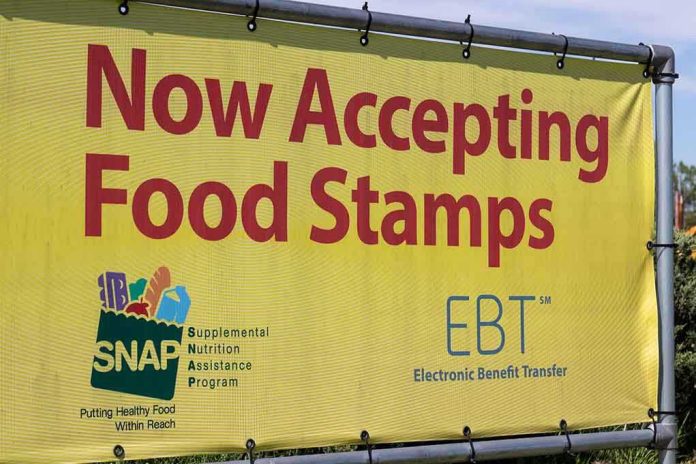
Wisconsin Governor Tony Evers blames President Trump for the SNAP funding crisis while critics point out the state sits on massive budget reserves that could temporarily sustain the program.
Story Snapshot
- Governor Evers warns Wisconsin’s FoodShare program will run out of funds in nine days due to federal shutdown
- Nearly 700,000 Wisconsin residents face potential disruption of food assistance benefits
- Evers demands Trump Administration provide temporary federal funding to continue program
- Critics question why Wisconsin won’t use state reserves to bridge funding gap temporarily
Evers Demands Federal Bailout Amid Shutdown
Governor Tony Evers announced October 21 that Wisconsin’s FoodShare program faces imminent funding depletion within nine days unless the Trump Administration provides emergency assistance. The Democratic governor directly blamed the federal government shutdown for threatening food assistance to nearly 700,000 Wisconsin residents. Evers urged the U.S. Agriculture Secretary Brooke Rollins to allocate temporary funds, positioning the crisis as solely a federal responsibility despite potential state-level solutions.
The governor’s public statements emphasized the urgency of federal intervention while calling on Wisconsin residents to pressure their congressional representatives. Evers characterized the situation as a direct result of partisan gridlock in Washington, deflecting attention from potential state remedies. His administration framed the issue as an unavoidable consequence of Trump’s policies rather than exploring interim state funding mechanisms.
Political Theater Over Practical Solutions
The timing of Evers’ announcement raises questions about political motivations versus genuine crisis management. Previous government shutdowns have seen states implement temporary measures using reserve funds or expedited disbursements to maintain essential services. Wisconsin’s approach of immediately demanding federal intervention without exploring state alternatives suggests a preference for political messaging over practical problem-solving for vulnerable residents.
Historical precedent shows states can mitigate SNAP disruptions through creative funding mechanisms during federal shutdowns. The Food Research & Action Center confirms that past shutdowns prompted states to use various temporary measures to prevent benefit interruptions. Evers’ administration appears to have bypassed these options in favor of public confrontation with the Trump Administration, potentially putting politics ahead of constituent welfare.
Shutdown Impact on Essential Services
The federal government shutdown began in October 2025 due to congressional disagreements over funding priorities, including healthcare subsidies and border security measures. Wisconsin’s FoodShare program, fully federally funded but state-administered, faces disruption as normal federal funding processes halt. The shutdown affects multiple federal nutrition programs, though some like WIC have received temporary funding to continue operations.
November SNAP benefits face delays as the shutdown continues without resolution, potentially impacting low-income families, children, veterans, and seniors across Wisconsin. The economic ripple effects include reduced consumer spending in local communities dependent on SNAP recipients’ purchasing power. This crisis highlights the vulnerability of federally dependent state programs during Washington’s political battles, exposing Wisconsin residents to consequences of partisan dysfunction they cannot control.
Sources:
Tony Evers warns Wisconsin FoodShare will run out in 9 days
Gov. Evers: Wisconsin FoodShare program to run out of funding in nine days
How Will Government Shutdown Affect SNAP Benefits
Wisconsin eligibility specialist sees desperate situation as funding ends











